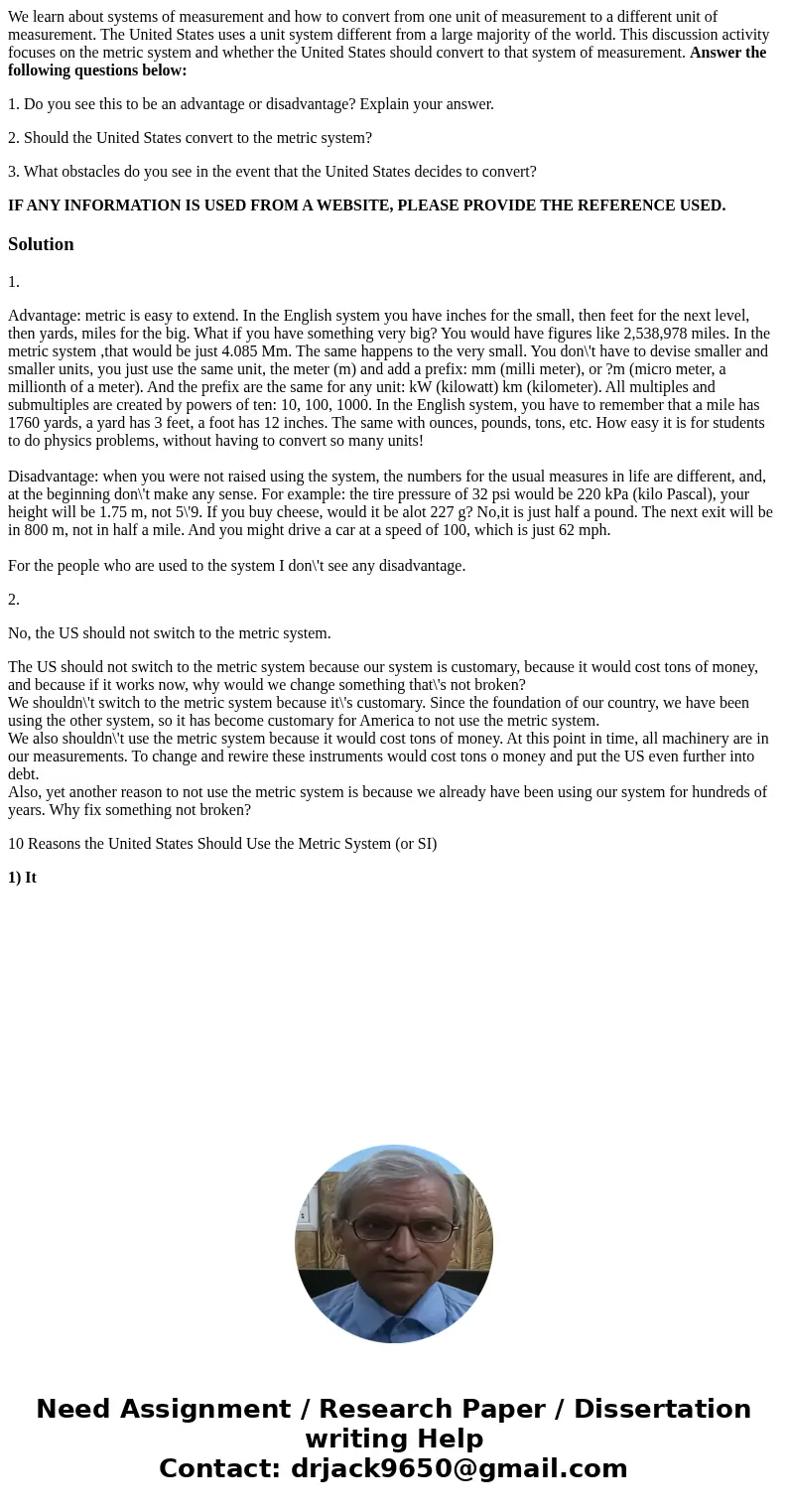We learn about systems of measurement and how to convert fro
We learn about systems of measurement and how to convert from one unit of measurement to a different unit of measurement. The United States uses a unit system different from a large majority of the world. This discussion activity focuses on the metric system and whether the United States should convert to that system of measurement. Answer the following questions below:
1. Do you see this to be an advantage or disadvantage? Explain your answer.
2. Should the United States convert to the metric system?
3. What obstacles do you see in the event that the United States decides to convert?
IF ANY INFORMATION IS USED FROM A WEBSITE, PLEASE PROVIDE THE REFERENCE USED.
Solution
1.
Advantage: metric is easy to extend. In the English system you have inches for the small, then feet for the next level, then yards, miles for the big. What if you have something very big? You would have figures like 2,538,978 miles. In the metric system ,that would be just 4.085 Mm. The same happens to the very small. You don\'t have to devise smaller and smaller units, you just use the same unit, the meter (m) and add a prefix: mm (milli meter), or ?m (micro meter, a millionth of a meter). And the prefix are the same for any unit: kW (kilowatt) km (kilometer). All multiples and submultiples are created by powers of ten: 10, 100, 1000. In the English system, you have to remember that a mile has 1760 yards, a yard has 3 feet, a foot has 12 inches. The same with ounces, pounds, tons, etc. How easy it is for students to do physics problems, without having to convert so many units!
Disadvantage: when you were not raised using the system, the numbers for the usual measures in life are different, and, at the beginning don\'t make any sense. For example: the tire pressure of 32 psi would be 220 kPa (kilo Pascal), your height will be 1.75 m, not 5\'9. If you buy cheese, would it be alot 227 g? No,it is just half a pound. The next exit will be in 800 m, not in half a mile. And you might drive a car at a speed of 100, which is just 62 mph.
For the people who are used to the system I don\'t see any disadvantage.
2.
No, the US should not switch to the metric system.
The US should not switch to the metric system because our system is customary, because it would cost tons of money, and because if it works now, why would we change something that\'s not broken?
We shouldn\'t switch to the metric system because it\'s customary. Since the foundation of our country, we have been using the other system, so it has become customary for America to not use the metric system.
We also shouldn\'t use the metric system because it would cost tons of money. At this point in time, all machinery are in our measurements. To change and rewire these instruments would cost tons o money and put the US even further into debt.
Also, yet another reason to not use the metric system is because we already have been using our system for hundreds of years. Why fix something not broken?
10 Reasons the United States Should Use the Metric System (or SI)
1) It

 Homework Sourse
Homework Sourse